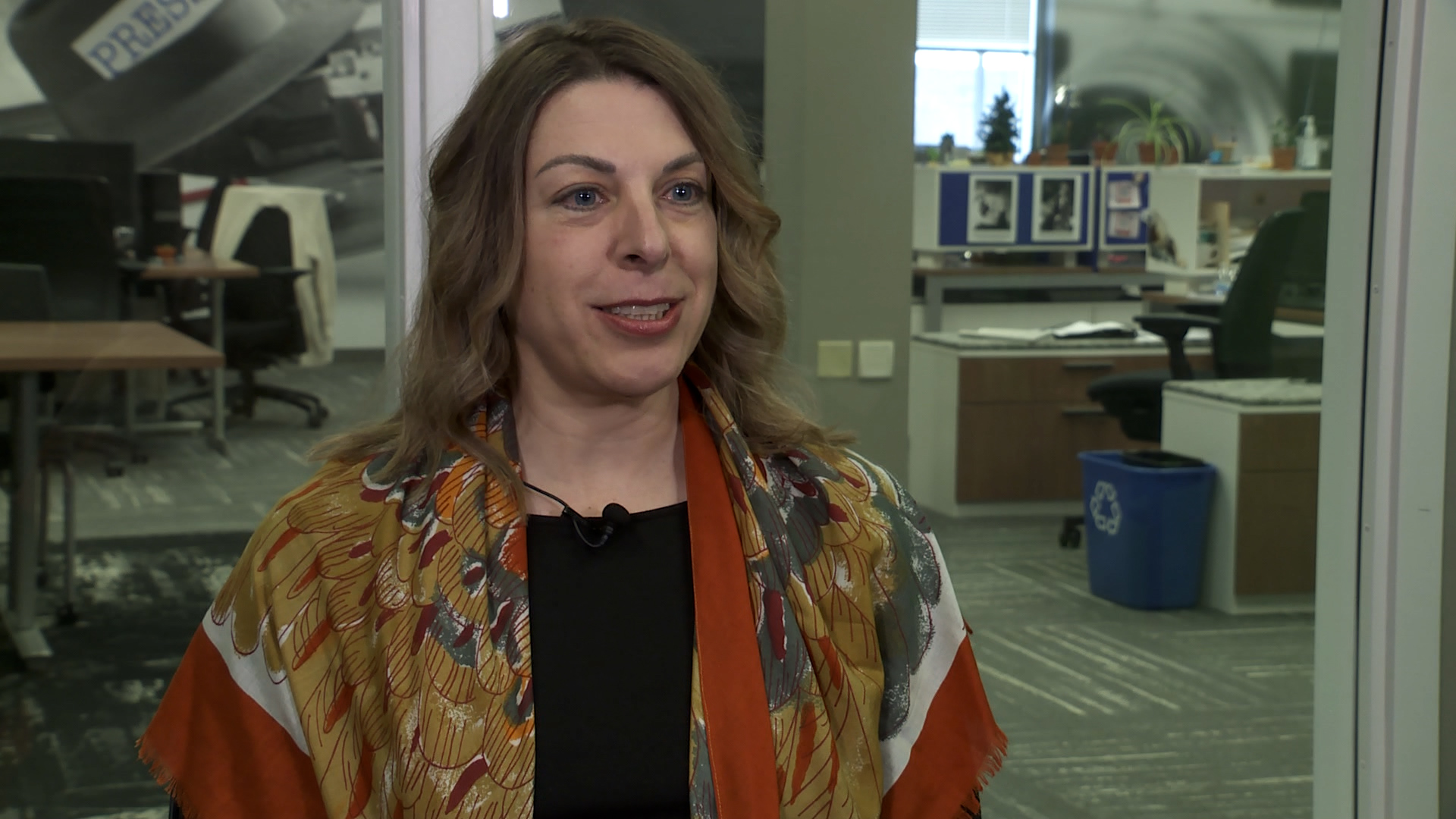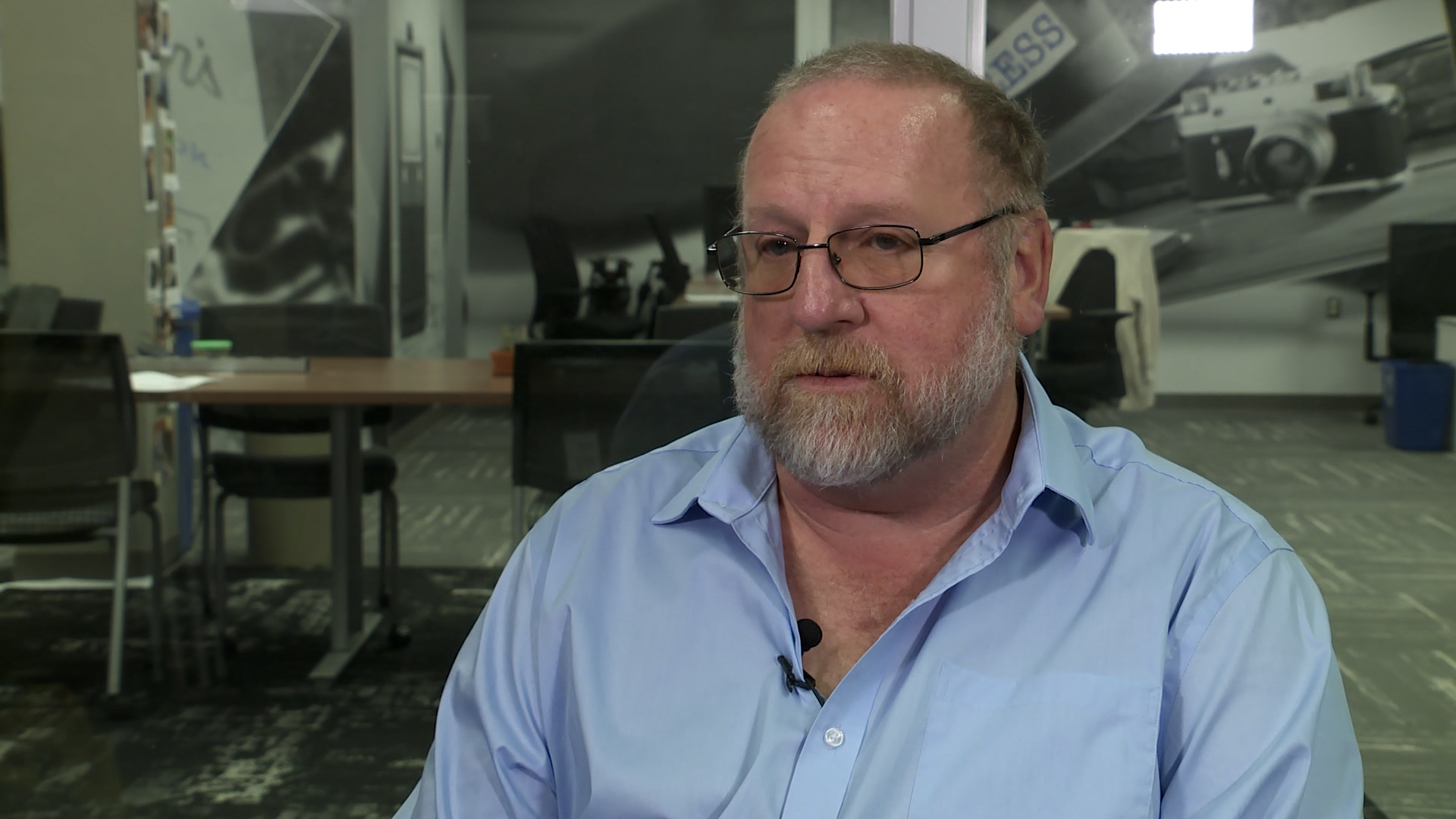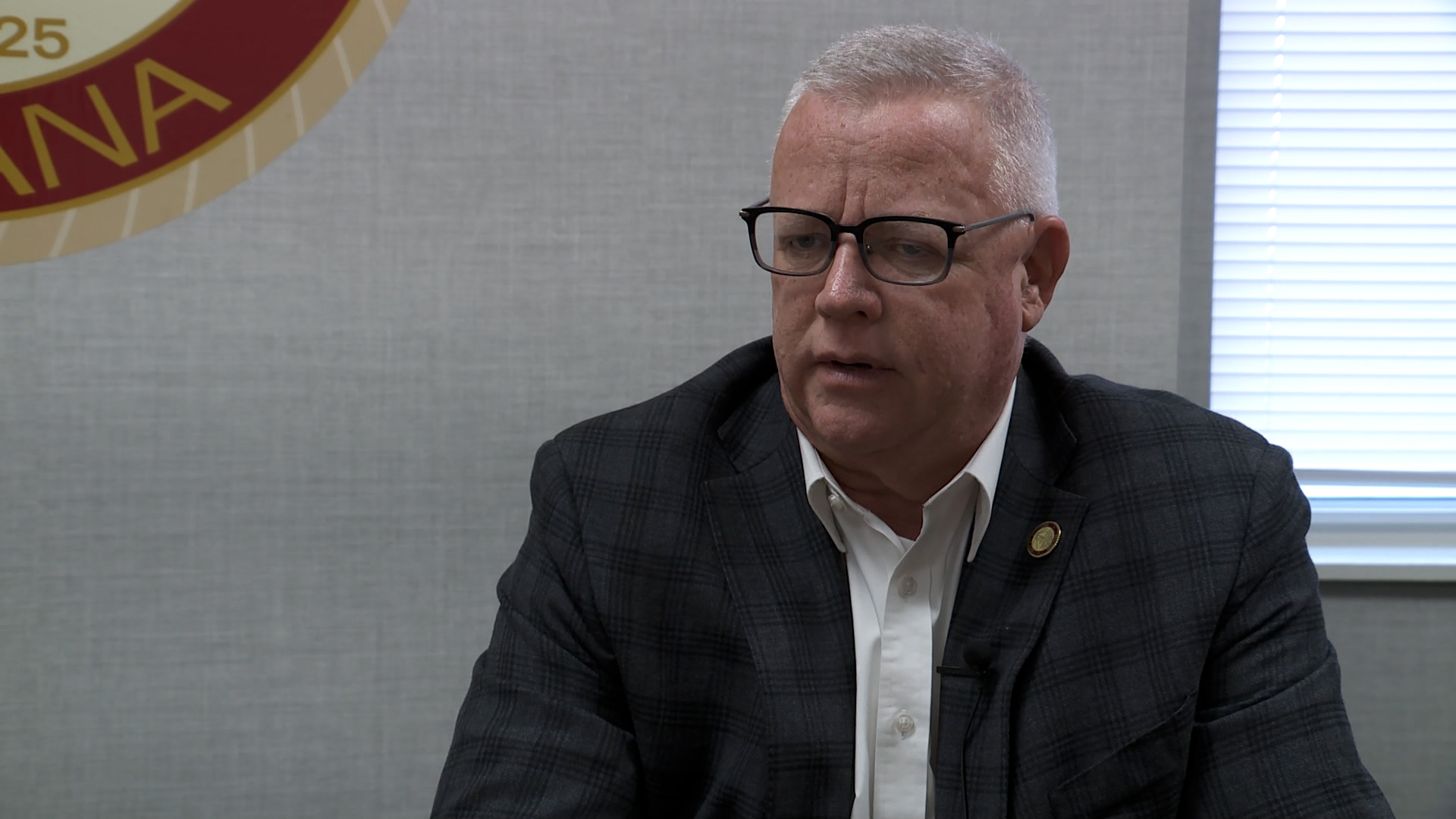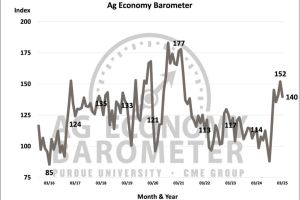
Federal workers in Bloomington and Bedford worry that their jobs might be the next to get the axe after significant cuts hit the VA, IRS, and Department of Education. (Katy Szpak/WTIU News)
Since taking office, President Trump has made sudden and sweeping cuts to the federal government, including the Department of Education, Veterans Affairs, the IRS, and more.
According to the Associated Press, he and the Department of Government Efficiency have cut over 125,000 federal jobs from the budget. They say they are cutting wasteful spending.
And though Trump has said that his administration wouldn’t touch Social Security, the Social Security Administration has said it plans to cut 12 percent of its work force, or roughly 7,000 employees.
Some people working in the Bloomington Social Security office, like claims representative Kate Dougherty, describe the situation as “terrifying.”
“It's gotten to the point where I don't even want to open my emails, you know, because I just don't know what's going to be in there,” she said.
Dougherty, a single mom, took her job as a claims representative 15 years ago.
“I needed something stable and good paying, and so I had done kind of social work stuff before, and this kind of fit the bill in terms of doing that,” she recalled.

And while it’s never been an easy job, she and her colleagues have been able to live good lives.
“All of us who work there are just regular middle-class people,” she said. “None of us are getting rich off of it. I'm able to, as a single parent, raise a child on this without having to get help.”
Now, with the threat of cuts, the job could be getting more difficult.
Dougherty said that in the Bloomington office, 12 Social Security workers serve 70,000 people.
“To think that that number would be reduced is just, I mean, it's unconscionable,” she said. “People in this area deserve better, and we as employees deserve better.”
And that 70,000 figure doesn’t include people currently applying, or will be applying, for benefits.
“We have a population of 300,000 in the five counties we serve, and everybody, at some point, is going to have contact with the Social Security office, either getting a card or something,” she said.
There’s also been confusion over how Americans can access or apply for benefits.
In a press release March 18, the administration announced that individuals may no longer verify their identity over the phone for benefits claims or direct deposit changes. They must now do so online or in person, something that can be a challenge for older citizens in rural areas. It was described as a fraud-prevention measure.
Then eight days later, the administration changed its plan to allow those applying for disability insurance, Medicare, or supplemental security income to complete claims over the phone.
“We get so many emails each week, and some are contradicting others that it's hard to actually keep up with what's going on,” Dougherty said.
Read more: ‘You’re not listening to us’: Hoosiers air frustrations as public officials face access scrutiny
Bill Price, another claims specialist at the Bloomington office, argues that even if the cuts to federal jobs stopped tomorrow, the ability to attract workers has been forever harmed.

“Jobs were stable, you didn't have to be affected by the ups and downs of the market,” he said. “So it wasn't going to pay as much as a private sector job, but you didn't have to look for a new job every five to six years, and that's now gone.”
Price has worked at the Bloomington Social Security office for 26 years. He said currently, employment at the federal agency is at an all-time low.
“We have been short-staffed for a considerable number of years,” he said. “Currently at the lowest level we've been in over 50 years, and trying to get new employees is rather difficult at the best of times, but right now, you can't hire there. There's a hiring freeze, and we're watching employees drop at 100 to 200 a month.”
For Arnold Scott, a representative of the American Federation of Government Employees Union, all of these rapid changes and cuts are unprecedented.
“I've been a national vice president for 25 years, and I have never seen an administration do what this administration is doing,” he said.
Scott said he worries about the jobs at Crane Naval base. Defense Secretary Pete Hegseth ordered a “strategic reduction” of roughly 60,000 civilian personnel at the Department of Defense, which could include Crane.
“I hope that when cuts come, that they spare Crane, because I know what they do down there, and it's important to our country,” he said.
Crane employs more than 5,000 Department of Defense civilian and contractor personnel.
Bedford, Indiana, where many employees of the base live, contains 4.4 percent of Indiana’s federal workforce, the second-highest city per capita in the state.
Bedford’s Mayor Sam Craig said major cuts to the base could shake up the city’s economy.
“Depending on what would take place at Crane, in reference to any cuts or anything. it will affect us some, from the standpoint of the people that work at Crane,” he said. “But then there's a possibility, depending on what takes place, if it would also affect us in reference to the government contractors (in the area).”

Though Crane itself has been quiet on exactly how many jobs are at risk, Craig said he’s heard from some of his constituents about the potential for buyouts.
“I did have some people talk to me, and they were referring to, evidently, kind of an early buyout on some of the employees that were going to go ahead and retire ahead of time,” he said.
But overall, the mayor showed little fear that the cuts to Crane will be significant. In fact, he said Crane is expected to grow in the coming years, and that Bedford is aiming to develop more housing in preparation.
“We're trying to support them the best way that we can, as far as being able to provide the housing and stuff for the employees that they're going to need in the future,” he said.
Craig said the cuts are a needed cinching of the belt on the federal budget. But federal workers in the trenches like Dougherty feel differently.
“Hobbling the federal workforce is really going after the middle class because it's a strong middle-class job,” she said.
For her, it’s hard to interpret the administration’s decisions as anything other than an attack on her livelihood.
Read more: Steel pollution rule would have better protected NW Indiana residents. Now it's been put on hold











